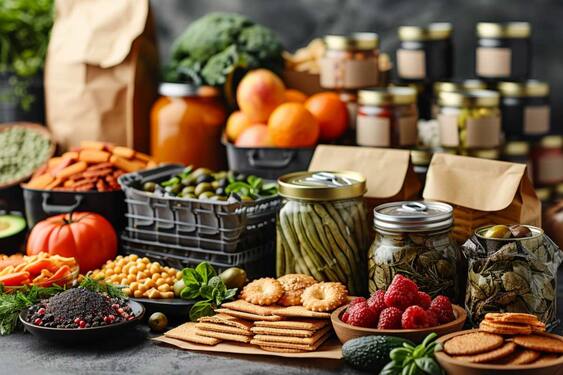9 Dangers Of Overindulging In Processed Foods Revealed
Consuming too much packaged food poses several health risks due to its typical characteristics. These foods often contain high levels of sodium, which can lead to hypertension and increase the risk of heart disease and stroke. Additionally, excessive sugar intake from packaged snacks and beverages can contribute to obesity, type 2 diabetes, and dental issues.

Consuming too much packaged food can pose several health risks due to its typical characteristics, such as high levels of salt, sugar, unhealthy fats, and preservatives. Here are some of the key risks associated with eating too much packaged food:
1. High Sodium Intake:
- Health Risks: Excessive sodium consumption can lead to high blood pressure, which increases the risk of heart disease and stroke. It may also contribute to fluid retention and kidney damage.
- Sources: Many packaged foods, such as canned soups, snacks, and frozen meals, contain high levels of sodium.
2. Increased Sugar Consumption:
- Health Risks: High sugar intake is linked to obesity, type 2 diabetes, and dental problems. It can also contribute to insulin resistance and metabolic syndrome.
- Sources: Packaged foods like sugary snacks, cereals, and beverages often contain added sugars.
3. Unhealthy Fats:
- Health Risks: Packaged foods often contain trans fats and excessive saturated fats, which can raise LDL cholesterol levels and lower HDL cholesterol levels. This imbalance can lead to cardiovascular diseases and other health issues.
- Sources: Processed snacks, baked goods, and some margarines or spreads are common sources of unhealthy fats.
4. Artificial Additives and Preservatives:
- Health Risks: Artificial additives, such as colorings, flavorings, and preservatives, may have potential health effects, including allergic reactions and other adverse effects. Some studies suggest a link between certain additives and long-term health issues.
- Sources: Packaged foods with long shelf lives often contain these additives to enhance taste, appearance, or preserve freshness.
5. Low Nutritional Value:
- Health Risks: Packaged foods are often low in essential nutrients like vitamins, minerals, and fiber. Consuming these foods regularly can lead to nutrient deficiencies and poor overall health.
- Sources: Many packaged foods are high in calories but lack important nutrients found in fresh fruits, vegetables, and whole grains.
6. Weight Gain and Obesity:
- Health Risks: Packaged foods are often calorie-dense and may contribute to weight gain when consumed in large quantities. Obesity is associated with a higher risk of various chronic diseases, including diabetes, heart disease, and certain cancers.
- Sources: High-calorie snacks, sugary drinks, and ready-to-eat meals can contribute to excessive calorie intake.
7. Digestive Issues:
- Health Risks: Many packaged foods are low in dietary fiber, which is essential for healthy digestion. A lack of fiber can lead to constipation and other digestive problems.
- Sources: Refined and processed foods often have reduced fiber content compared to whole, unprocessed foods.
8. Mental Health Impacts:
- Health Risks: Diets high in processed foods have been linked to poorer mental health outcomes, including depression and anxiety. The high sugar and fat content can also affect mood and cognitive function.
- Sources: Packaged foods high in sugar, unhealthy fats, and additives may contribute to these mental health issues.
9. Impact on Metabolism:
- Health Risks: Excessive consumption of packaged foods can disrupt metabolic processes, leading to insulin resistance and metabolic syndrome. This can affect overall metabolic health and increase the risk of chronic diseases.
- Sources: Highly processed and sugary foods can impact metabolic functions negatively.
By being mindful of your packaged food consumption and incorporating more whole foods into your diet, you can mitigate many of these health risks and promote overall well-being.
